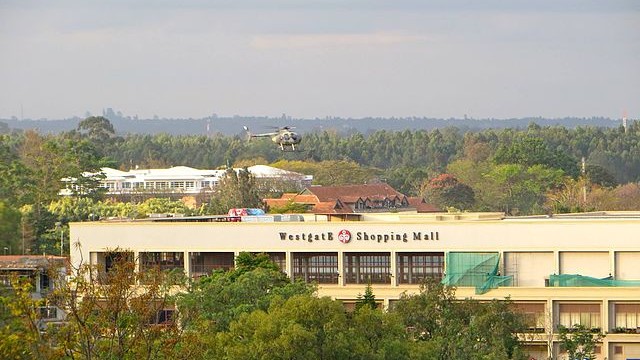Over the last few years, Kenya has been beset by a string of terrorist attacks:
- 2011: A French woman was abducted, a Brit was kidnapped, and her husband was murdered, all near the Kenyan coast.
- 2012: A series of grenade attacks occurred different parts of the country.
- September 2013: Armed gunmen from Islamic militant group al-Shabaab stormed the Westgate Mall in Nairobi, shot patrons indiscriminately and held others hostage. By the end of the four-day siege, there were 67 casualties.
- June-July 2014: a series of bombings in the coastal areas of Mombasa, Lamu and Tana River killed at least 30 people.
It’s all a far cry from 2010, when Prince William proposed to Kate Middleton at a rustic lodge near Mount Kenya and the country’s tourism industry basked in the reflected glow.
Now Kenya’s tourism industry is reeling from the violence. In 2013 tourist arrivals dropped by 11.7% compared to the previous year.
Following the latest attacks, many foreign ministries and embassies issued travel advisories and warnings to their citizens, including Australia, the UK, France, and the USA. Though these warnings do not explicitly forbid foreigners from entering Kenya, they are worded so as to leave no doubt that danger lurks.
“U.S. citizens in Kenya, and those considering travel to Kenya, should evaluate their personal security situation in light of continuing and recently heightened threats from terrorism and the high rate of violent crime in some areas,” reads the warning on the U.S. State Department web site.
Together, the news stories and advisories indeed make Kenya, especially the coast, seem like a grim place to visit or do business. It’s an image that the government is desperately trying to counteract as more and more people ask “is Kenya safe for tourists?”
The Kenya Tourist Board, for example, notes that the country is roughly the same size as France, and the vast majority of it is safe.
Africa specialist &Beyond echoed this sentiment in a recent statement it issued about the current situation in Kenya: “Most of Nairobi as well as Kenya’s national parks have been unaffected, and tourism to these areas continues as normal.”
The national government assures investors and tourists that its security forces are still on top of affairs. In an unusual show of unity, erstwhile political rivals have shared a podium to condemn the attacks and proclaim Kenya a united state.
President Uhuru Kenyatta added that Kenya was indeed waging a war against al-Shabaab militants, but one that would be won by Kenyans. “We are as brave and invincible as the lions on our Coat of Arms,” he declared.
These statements have been backed by concrete measures to combat terrorism. In a press conference on Monday in New York City Phyllis Jepkosgei Kandie, the Kenyan secretary for East African Affairs, Commerce and Tourism, outlined the efforts the government is making to make visitors safe:
- 7,000 new recruits are set to be added to the police force
- New police vehicles, fixed winged planes and helicopters are being deployed
- Cameras are being installed on every street corner and in every major building in major towns
- A new tourist police force is being created take care of tourists
In addition, the county government of Mombasa acquired 50 police patrol cars and motorcycles to boost security (a move that is ordinarily the jurisdiction of the national government), and security checks and body frisks are now common in malls and other public places.
Not all foreign governments have reacted to the violence in Kenya the way the US and UK have. Germany and Austria, for example, have issued no formal warnings, and hundreds of Germans and Austrians can be found happily milling about the beaches and restaurants of Mombasa, which are mostly devoid of Brits and Americans.
And Chinese tourism is actually increasing. Between 2012 and 2013 Kenya saw a 6.3% increase in Chinese arrivals. In April 2014 a delegation of Chinese tour operators visited Kenya and said they are not fearful of the travel advisories, and view the country as having some of the best scenery in the world.
But although assurances have been made and security in tourist and business establishments has been beefed up, sporadic attacks still occur.
Despite these ongoing incidents of violence, many ordinary Kenyans and inbound tourists feel that the country is safe enough. The national airports continue to see thousands of tourist arrivals daily. Retail traders go about their business selling curios and cultural artefacts to tourists. The big five continue to roam the dusty savannahs. Life moves on in this highly robust nation.
Karen Elowitt contributed to this article.
